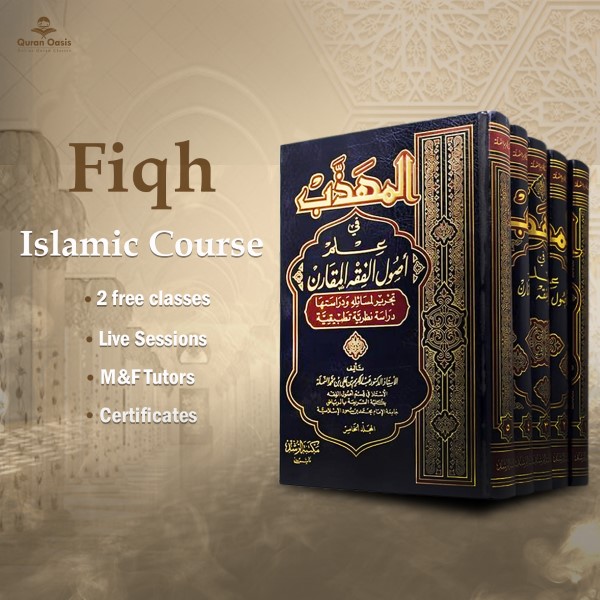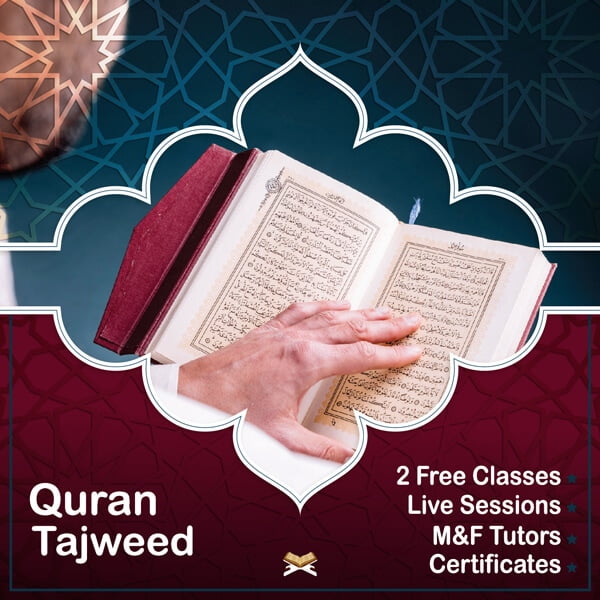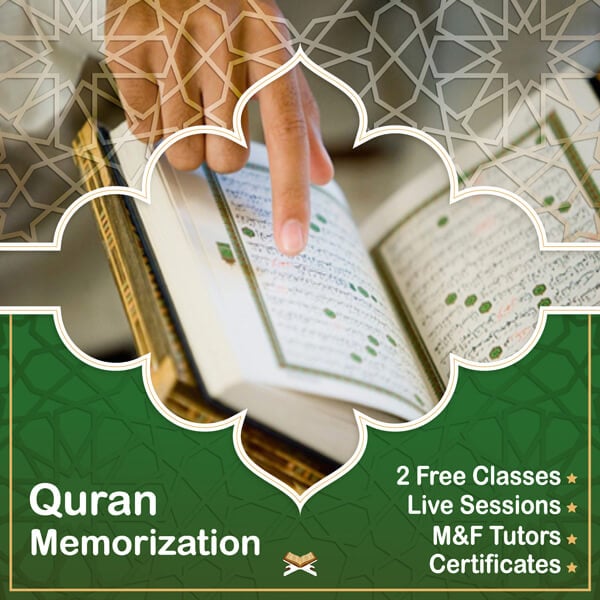A fiqh in islam course is an educational course that aims to study Islamic jurisprudence, which is the science that relates to the legal rulings derived from detailed evidence. The hanafi fiqh course usually covers a range of topics that include worship (such as prayer, fasting, zakat, and Hajj) and transactions (such as buying and selling, contracts, and debts), in addition to family rulings, limits and crimes, and other issues that regulate the life of a Muslim.
These courses may be offered at multiple levels, starting from beginners who learn the basics, all the way to advanced students who delve into the details and legal evidence.
Fiqh Course In Britain – Quran Oasis: Practical Online Fiqh for Daily Life
Online Fiqh Courses In Britain
A well-structured online fiqh course In Britain bridges classical Islamic jurisprudence and contemporary life. At Quran Oasis we offer accessible online fiqh courses that teach the rules derived from the Qur’an and Sunnah, guiding students through worship, transactions, family law, and criminal rulings with clarity and real-world examples. Whether you seek a basic fiqh class to build a foundation or an advanced fiqh course online that examines legal proofs, our program is built for practical application and spiritual growth.
Fiqh Classes Online In Britain
Choosing fiqh classes online brings expert instruction to your schedule and context:
- Understand and apply Sharia: Fiqh classes online help you translate rulings into everyday practice for prayer, fasting, zakat, and more.
- Tackle modern issues: Our lessons address new financial instruments, digital ethics, and social changes from a jurisprudential perspective.
- Flexible learning: Study at your pace with live interactive sessions, recorded lectures, and personalized feedback from qualified scholars.
- Community and guidance: Fiqh classes foster a supportive learning environment where you can ask questions and receive reasoned answers.
Hanafi Fiqh Course In Britain
Our hanafi fiqh course emphasizes the Hanafi school’s methodology and rulings while remaining respectful of comparative jurisprudence.
The curriculum covers core topics:
- Worship: prayer, purification, fasting, zakat, and pilgrimage.
- Transactions: sales, contracts, loans, and modern banking scenarios.
- Personal status: marriage, divorce, inheritance, and maintenance.
- Crimes and penalties: hudud, ta’zir, and procedural rulings.
- Usul and evidence: Qur’an, Sunnah, consensus, analogy, and principles of derivation.
Students progress from basic fiqh to advanced analysis, learning not only rulings but also the reasoning behind them so they can apply principles confidently in new contexts.
Fiqh Course Benefits
Enroll in a fiqh course for measurable benefits:
- Strengthened worship and spirituality through correct practice.
- Practical decision-making for family, business, and social life.
- Ability to resolve contemporary juristic dilemmas with confidence.
- Enhanced critical thinking from studying usul al-fiqh and legal methodology.
- Preparation for community leadership and advisory roles.
Fiqh Class Curriculum
Our fiqh class structure is designed for clarity and steady progress. Each module blends lecture, case studies, and assessments, with clear learning outcomes:
- Introductory modules: basic terminology, sources of Sharia, and purification rules.
- Core modules: detailed rulings on ibadah, muamalat, and personal status.
- Advanced modules: principles of jurisprudence, comparative rulings, and evidence analysis.
- Applied workshops: scenario-based learning for modern financial contracts, family disputes, and online conduct.
Students receive graded assignments, live Q&A sessions, and recommended readings to consolidate knowledge. This approach ensures that fiqh classes are more than memorization—they build the skills to derive and apply rulings responsibly.
Fiqh Course Online In Britain
Common concerns about an online fiqh course—credibility, depth, and relevance—are fully addressed here. We employ accredited instructors with ijazah and academic qualifications, provide recorded lessons for review, and offer practical assessments to verify competency. If you worry about time, choose a flexible fiqh course online option with part-time pacing and downloadable materials. If language or madhhab alignment matters, our instructors explain Hanafi positions clearly while comparing other schools where relevant to equip you for real-life decisions. Ready to start? Visit the course page at https://quranoasis.com/quran-tajweed-courses-quran-arabic-quran-tajweed/fiqh-course/ to view the syllabus, meet instructors, and enroll in a fiqh class that fits your goals.
Overcoming Objections
Many prospective students hesitate before joining fiqh courses; here’s how we respond:
- “Is an online fiqh course authentic?” Our faculty combine traditional credentials and contemporary scholarship to ensure authenticity and academic rigor.
- “Will I miss nuance without in-person study?” Interactive live sessions, small-group discussions, and one-on-one mentorship recreate close learning conditions online.
- “Can I balance work and study?” Our fiqh class options include evening cohorts, self-paced tracks, and modular assessments to fit busy lives.
- “What if I come from a different madhhab?” Courses center on Hanafi jurisprudence where specified, with comparative notes so students understand differences and practical choices.
Who Should Enroll
This fiqh course online In Britain is ideal for:
- New Muslims and beginners seeking solid foundational rulings.
- Students preparing for community leadership, imamate, or counseling roles.
- Professionals and business owners needing clarity on transactions and contracts.
- Anyone wanting to deepen worship and apply Sharia ethically and practically.
Enrollment and Next Steps
Take the next step toward confident practice and leadership. Enroll in our fiqh classes to gain lived understanding, certification, and the ability to advise others responsibly. Visit the Fiqh Course – Quran Oasis page to view schedules, trial lessons, and payment plans. If you have questions, contact our admissions team for guidance on the best fiqh course online for your level and goals. Start learning today—transform knowledge into action and deepen your relationship with Allah through informed practice.










